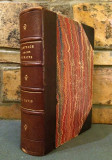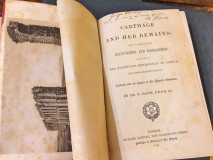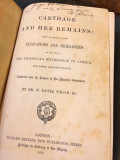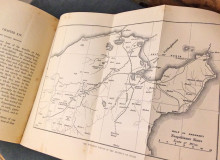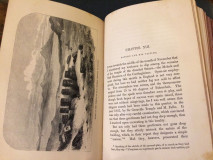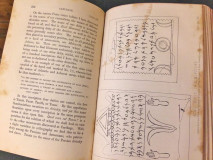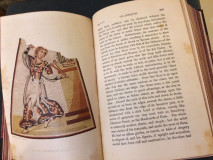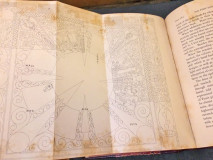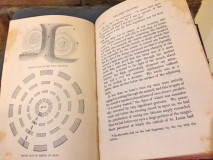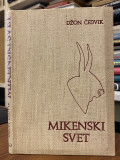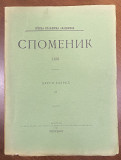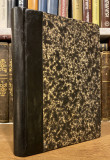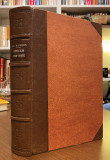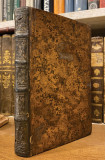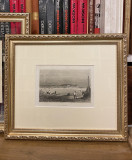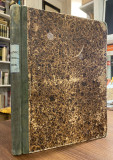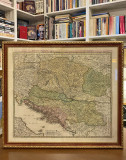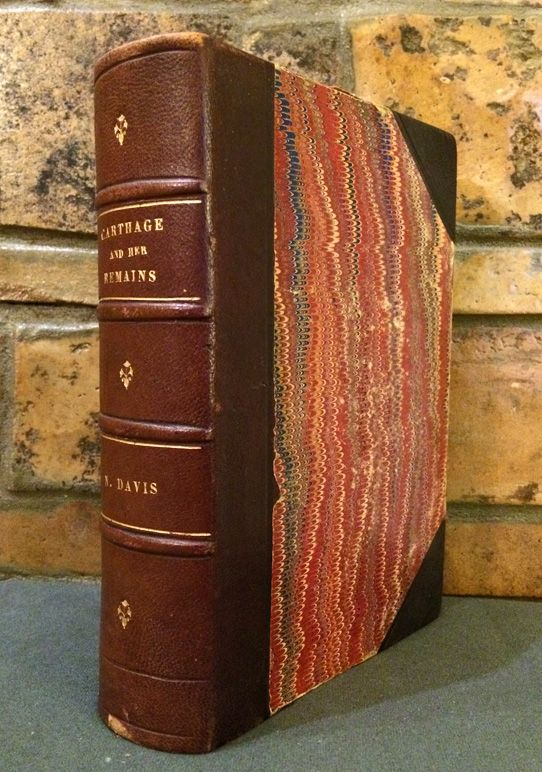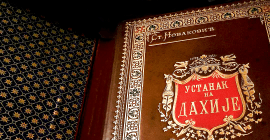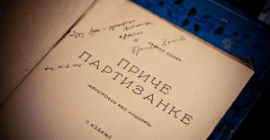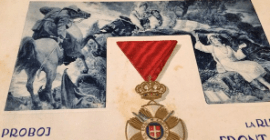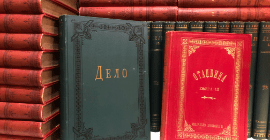Carthage and her Remains: Being an account of the excavations and researches on the site of the Phoenician metropolis in Africa, and other adjacent places - Dr. N. Davis 1861
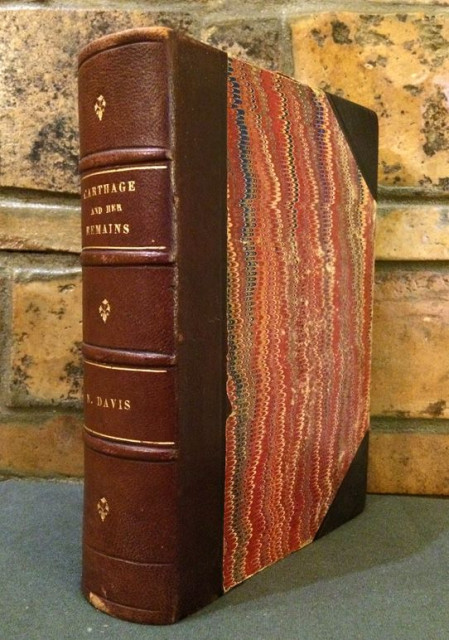
Oblast: Arheologija
Artikal: 10731 : Tezina: 1.2 kg
Zalihe:
0 u zalihama
Izdavač: Richard Bentley
Autor: Davis Nathan
Opis: Primerak sa potpisom autora, 1. izdanje, London 1861, tvrdi orig. polukožni povez, stanje: vrlo dobro 4+, str. 631, bogata ilustracijama, table, mape, engleski, vidi slike
0 RSD
Signed copy by Nathan Davis and dedicated to George Bishop, including exlibris of George Bishop with motto "Labor Omnia Vincit ". Today, the Bishops' High School in Georgetown, Guyana has the same motto.
DAVIS, NATHAN (1812–1882), traveller and excavator, was born in 1812. He spent many years of his life in Northern Africa, and published his experiences in: 1. ‘Tunis, or Selections from a Journal during a Residence in that Regency,’ Malta, 1841, 8vo. 2. ‘A Voice from North Africa, or a Narrative illustrative of the … Manners of the Inhabitants of that Part of the World,’ Edinburgh [1844?], 8vo; another ed. 16mo, dated 1844, Edinburgh. 3. ‘Evenings in my Tent, or Wanderings in Balad, Ejjareed, illustrating the … Conditions of various Arab Tribes of the African Sahara,’ 2 vols., London, 1854, 8vo. 4. ‘Ruined Cities within Numidian and Carthaginian Territories,’ London, 1862, 8vo. For many years he lived in an old Moorish palace, ten miles from Tunis, where he extended his hospitality to various travellers. In 1852 he edited the ‘Hebrew Christian Magazine,’ and afterwards became a nonconformist minister. From 1856 to 1858 he was engaged on behalf of the British Museum in excavations at Carthage and Utica. At the end of 1858 fifty-one cases of antiquities sent home by him were received at the museum. Other cases arrived in 1857 and 1860. The chief antiquities discovered were Roman mosaic pavements (now in the British Museum; Davis describes his explorations in ‘Carthage and her Remains,’ London, 1861, 8vo. He also published ‘Israel's true Emancipator’ (two letters to Dr. Adler), London, 1852, 8vo, and (in conjunction with Benjamin Davidson) ‘Arabic Reading Lessons,’ London [1854], 8vo. Shortly before his death Davis revisited Tunis, but the journey tried his strength, and he died at Florence on 6 Jan. 1882 of congestion of the lungs.
DAVIS, NATHAN (1812–1882), traveller and excavator, was born in 1812. He spent many years of his life in Northern Africa, and published his experiences in: 1. ‘Tunis, or Selections from a Journal during a Residence in that Regency,’ Malta, 1841, 8vo. 2. ‘A Voice from North Africa, or a Narrative illustrative of the … Manners of the Inhabitants of that Part of the World,’ Edinburgh [1844?], 8vo; another ed. 16mo, dated 1844, Edinburgh. 3. ‘Evenings in my Tent, or Wanderings in Balad, Ejjareed, illustrating the … Conditions of various Arab Tribes of the African Sahara,’ 2 vols., London, 1854, 8vo. 4. ‘Ruined Cities within Numidian and Carthaginian Territories,’ London, 1862, 8vo. For many years he lived in an old Moorish palace, ten miles from Tunis, where he extended his hospitality to various travellers. In 1852 he edited the ‘Hebrew Christian Magazine,’ and afterwards became a nonconformist minister. From 1856 to 1858 he was engaged on behalf of the British Museum in excavations at Carthage and Utica. At the end of 1858 fifty-one cases of antiquities sent home by him were received at the museum. Other cases arrived in 1857 and 1860. The chief antiquities discovered were Roman mosaic pavements (now in the British Museum; Davis describes his explorations in ‘Carthage and her Remains,’ London, 1861, 8vo. He also published ‘Israel's true Emancipator’ (two letters to Dr. Adler), London, 1852, 8vo, and (in conjunction with Benjamin Davidson) ‘Arabic Reading Lessons,’ London [1854], 8vo. Shortly before his death Davis revisited Tunis, but the journey tried his strength, and he died at Florence on 6 Jan. 1882 of congestion of the lungs.

